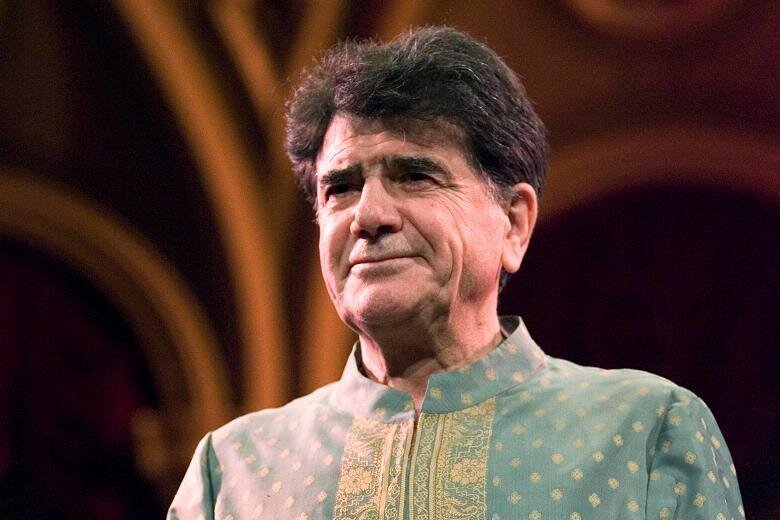Documentary on vocalist Mohammadreza Shajarian produced

TEHRAN-Iranian filmmaker Keyvan Mehregan has made a documentary on legendary vocalist Mohammadreza Shajarian, who passed away last October at 80, years after suffering from kidney cancer.
The production of 129-minute documentary entitled “Siavash in Fire” took 35 months, Honaronline reported on Wednesday.
The documentary surveys the life and career of Master Shajarian as well as the transformation of Persian music and poetry in the context of Iranian history at that time.
Known as Iran’s king of song who once called himself the “son of Iran”, Shajarian was born in the religious city of Mashhad and began his vocal career from childhood with his father who taught him Quran recitation. His recitations of the Holy Quran were aired by Mashhad Radio when he was only 12.
At the same time, he was also pursuing a career in vocal music.
His collaborations with Golha, a professional music program of Tehran Radio that had many top musicians, in 1972 opened a window of opportunity for Shajarian. He started a friendship with many elites of Persian traditional music who played a key role in the development of his virtuosity.
As he was completing his education with the top maestros such as Faramarz Payvar, Nurali Khan Borumand and Abdollah Davami, he also pursued his Quran recitations professionally. In 1978, he finished first in Iran’s nationwide Quran competition. In summer 1979, he took second place in the recitation category of a Malaysian Quran contest.
He split from Golha, and consequently, radio in early 1978. “At that time, the program was not in harmony with my feelings. I felt that the radio’s policy was being made by cabarets and cultural triviality.”
His friends in the Sheida and Aref music ensembles also separated from the radio in protest at the killing of demonstrators on Black Friday on 8 September 1979. They teamed up to produce some protest songs, which were released in album series named Chavosh.
The epic song “Sepideh” (“Dawn”) composed by Mohammadreza Lotfi with a poem by their close friend Hushang Ebtehaj, who is also known by his pseudonym “Sayeh”, become a smash hit that Shajarian performed with the Sheida ensemble at National University in Tehran in 1980. “In Memory of Aref” and “The Soul of the Beloved” were among the albums Sheida recorded with Shajarian.
In 1980, a recitation of an invocation, known as “Shajarian’s Rabbana”, that he improvised for his students was recorded at Iran’s national radio. The divine recitation, which is composed of four verses of the Holy Quran, opens with a prelude featuring verses of a mesmerizing Rumi poem promoting the fast during Ramadan.
In 2017, the Cultural Heritage, Tourism and Handicrafts Organization registered “Rabbana” on the National Intangible Cultural Heritage list.
In the 1980s, he pursued a teaching career in music courses, one of the outcomes of which was that his son, Homayun, is now a popular vocalist of the new generation.
He worked with many musicians and finally in 2008, founded his own group Shahnaz named after his master and tar virtuoso Jalil Shahnaz. His daughter Mojgan and composer and tar virtuoso Majid Derakhshani were among the members of the ensemble, along with whom he embarked on a world tour in 2010, using his innovative instruments, including the sorahi, arghanun and barbad.
Shajarian was also quite agreeable to the innovations made by his son, Homayun, in the traditions of Persian song.
He was nominated for a Grammy Award in Best World Music 2004 and 2006, and was the recipient of numerous awards and honors, including a UNESCO Golden Picasso Medal in 1999. He was also decorated with France’s Chevalier of the Legion of Honor in June 2014.
Shajarian was also known for his skills in Persian calligraphy, and showcased his works in several exhibitions.
ABU/MG
